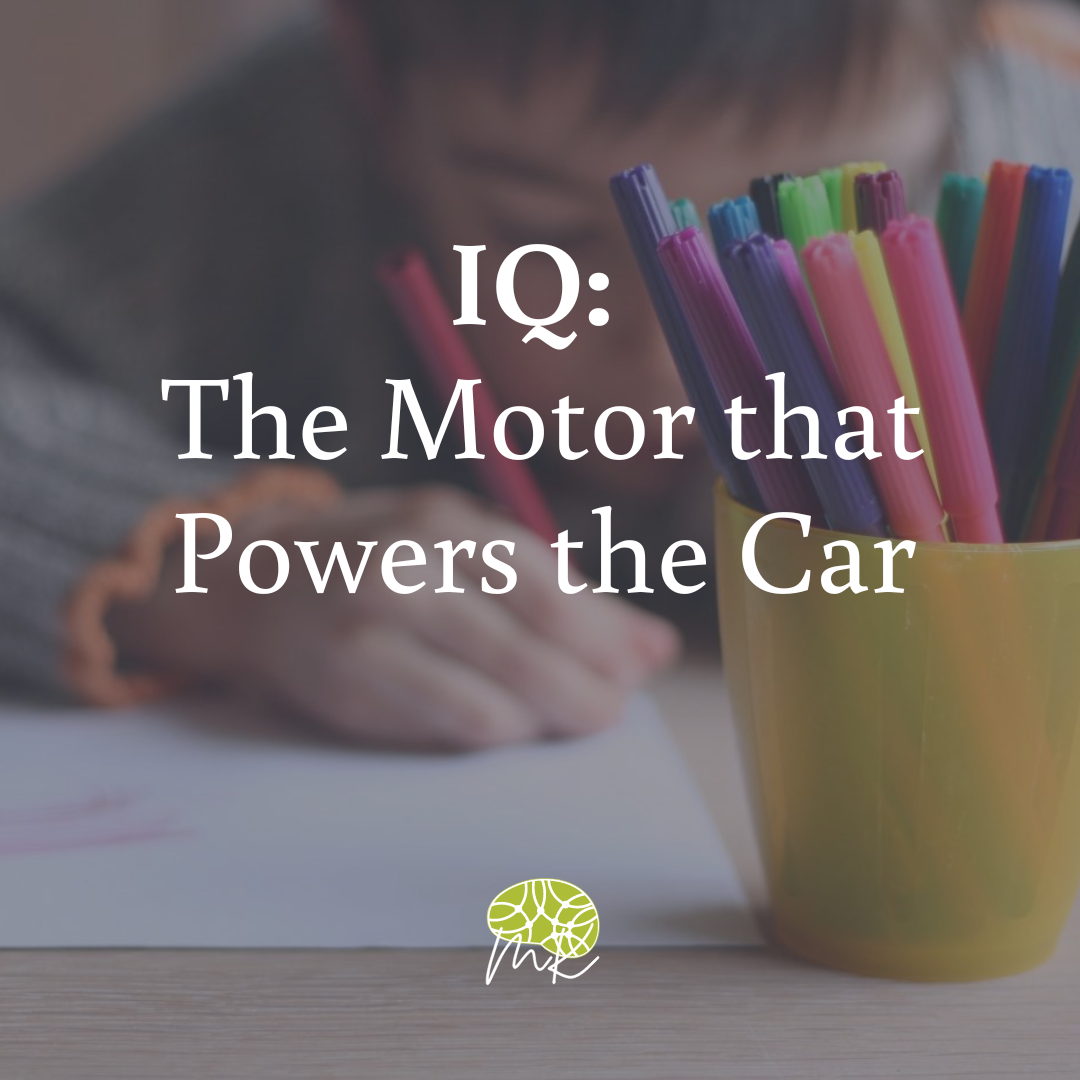IQ: The Motor that Powers the Car
Many of my students’ parents reach out to me because their child is struggling with learning or focus, and their school has recommended that educational testing be pursued, perhaps with an eye toward extra support within the classroom.
One critical aspect of an educational assessment is IQ testing.
What does an IQ test tell us about a person? What does it truly measure? Can intelligence actually even be measured? And, if so, how meaningful or even useful is that information?
So What is ‘Intelligence' Anyway?
We tend to think of it as a single trait, but it is actually the combination of many moving parts, including the capacity for abstraction, logical understanding, self-awareness, learning, emotional awareness, creativity, and problem-solving, among others.
Some believe that the most important aspects of intelligence have less to do with the above considerations, but are instead related to social, emotional, and moral development, and they will refer to those who are so-called ‘book-smart’ vs. ‘street-smart.’
Still others speak in terms of giftedness in specific areas such as athletic, musical, or artistic intelligence.
In their own way, each of the above definitions provides valid and useful information about intelligence.
What IQ Tests Measure and Their Importance
A standard IQ Test typically takes about an hour and involves a dozen or so sub-tests, frequently assessing for verbal and visual functions, short-term memory, and processing speed. There are several common measures, including the Wechsler Scales and the Stanford-Binet.
Intelligence tests yield multiple scores. Among them is the Full-Scale Intelligence Quotient, or FSIQ, which is the overall score obtained by statistically comparing a student’s performance to those of a similar age. The Average or ‘normal’ range of scores is 90-109. The extent to which one places within or outside these parameters is considered a reflection of one's abilities.
IQ scores are used for several purposes, including educational placement and determining the need for accommodations.
Understanding the Limitations of IQ Testing
Despite its common usage, the notion of what constitutes intelligence, as noted above, continues to be controversial, and there remain valid criticisms of IQ in general and IQ testing specifically.
Among them is the argument that intelligence is far too complex to be accurately measured by a series of discrete cognitive tests. As mentioned above, an IQ test does not measure social or emotional intelligence, moral reasoning, creativity, or problem-solving.
Also, several factors can interfere with accurately measuring one’s IQ, such as fatigue, low motivation, and/or weak focus. All of these potential sources of interference need to be accounted for and interpreted in context by en expert evaluator.
Most of all, IQ scores can be misunderstood or even misused by those with the power to act on them.
The Role of IQ in Child Development and Learning
When I discuss intelligence and IQ findings with my students’ parents, I try to put them in ‘real world’ terms.
Specifically, I liken their child’s IQ score to that of a motor - or engine; as the motor that powers the car.
We need the motor to be healthy, running smoothly, and producing sufficient horsepower. Without such, the car risks not making it through its lifelong journey.
With that said…. we need to inspect the rest of the car too!
The engine is an important starting point, and an essential component, necessary for our would-be car to get to where it wants to go.
But it is also incomplete.
That is, the IQ is one of many critical component parts that need to be in full working order for the car to operate successfully!
A full assessment allows for this to occur.
A complete, thorough Educational Examination involves a far more comprehensive battery of tests. Beyond just intelligence, it systematically assesses current levels of learning, other facets of thinking, behavior, motivation, social functions, mood, and self-esteem.
Put another way, complete testing allows us to look beneath the hood of the would-be car and perform a full diagnostic inspection.
With all of this information in hand, we can ensure that our car runs smoothly from top to bottom and that everything is in place to ensure a safe, satisfying, lifelong journey.
To book a testing appointment or to speak further about my services, please feel free to contact me at 973-908-4860. Additional information can be found at www.drkoffman.com.



